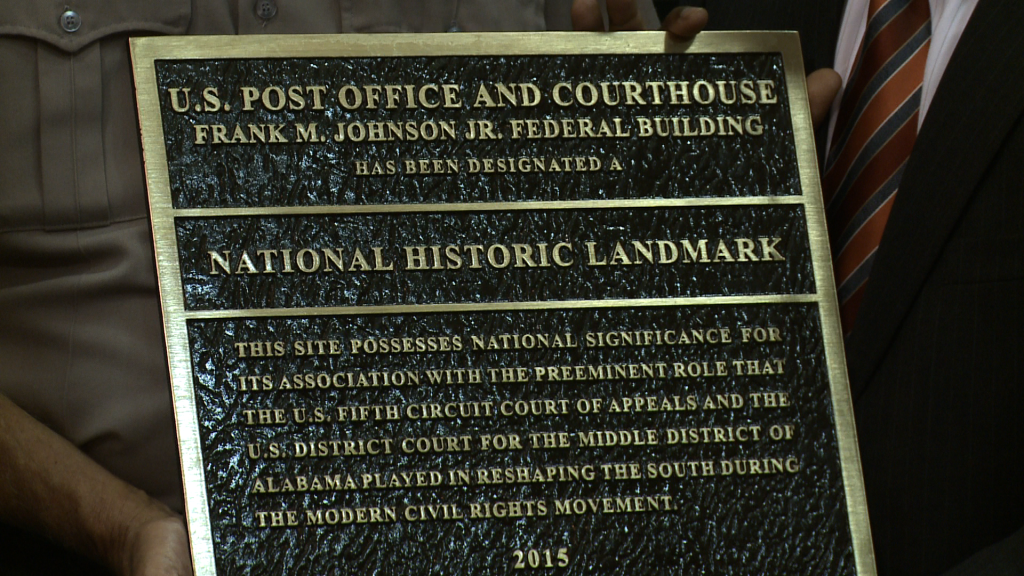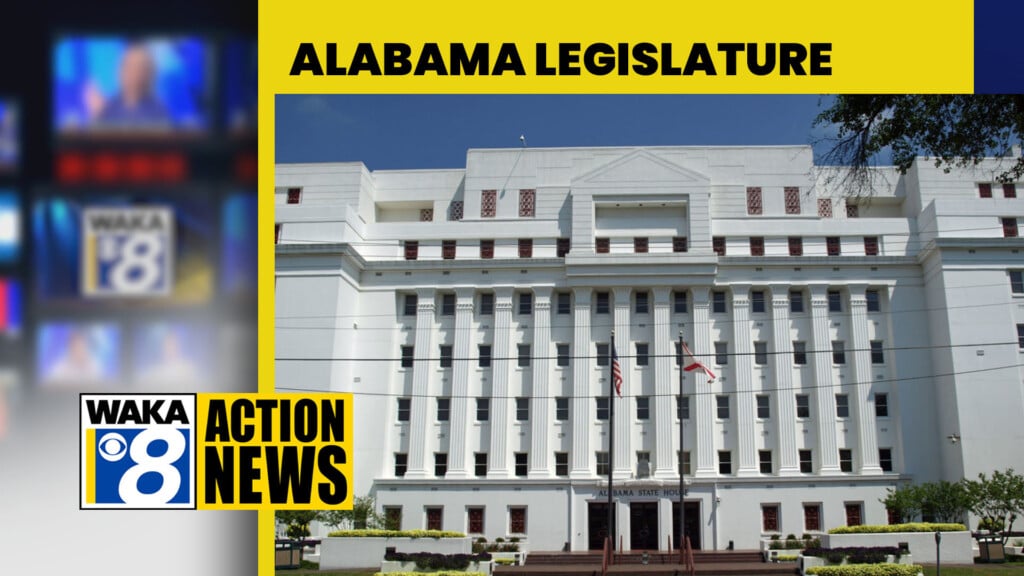Frank M. Johnson Jr. Federal Courthouse Named National Historic Landmark

[gtxvideo vid=”AU0FABuq” playlist=”” pid=”XiOflQdH” thumb=”http://player.gtxcel.com/thumbs/AU0FABuq.jpg” vtitle=”Courthouse Landmark”]
A building that played a pivotal role in the Civil Rights Movement was nationally recognized today.
The Frank M. Johnson Jr. Federal Building and U.S. Courthouse was designated a National Historic Landmark. The courthouse was built in 1933 and since that time, it’s played host to countless trials.
But it’s the ones that took place during the Civil Rights Movement of the 50s and 60s, that the building is most known for.
The National Parks Service was in town to make the announcement and unveil a marker that’ll sit outside of the building.
“The National Historic Landmarks are the highest recognition the nation can bestow on sites of historical significance,” said JOhn Jarvis, Director of the National Parks Service.
There’s no doubt that the Frank M. Johnson Jr. Courthouse has historical significance. The courthouse played a prominent role in the Civil Rights Movement, with Judge Frank Johnson making landmark decisions in favor of African American rights. U.S. District Court Judge Myron Thompson says Johnson continues to inspire.
“Buildings in it of themselves don’t have meaning, it’s the people who give meaning to buildings. I’ve just covered and lived through 35 years at this courthouse and I knew Frank Johnson. I was a judge while he was here and I’ve been a judge since he was here.”
In the 1950’s and 1960’s, rulings that changed the face of Alabama came out of this courthouse. Judges ruled to desegregate schools and busses, ruled to allow the Selma to Montgomery march to go on and ruled to establish civil rights laws.
“When I was told this morning about this event this afternoon, I just felt like I had to be here,” said Mary Liuzzo Lilleboe.
The dedication has special meaning for Liuzza-Lilleboe, the daughter of Viola Liuzzo, a civil rights activist who was killed by the KKK after the Selma to Montgomery marches.
“To be here where the decision was made to convict the men of violating my mother’s civil rights was some justice for us and significant to me because I believe it was only the first or second time that there had been federal prosecution for civil rights crimes.”
The Frank M. Johnson Jr. Federal Courthouse is still an active courthouse. The National Parks Service and the General Services Administration will work to figure out a way for the public to visit at times when court is not in session.






